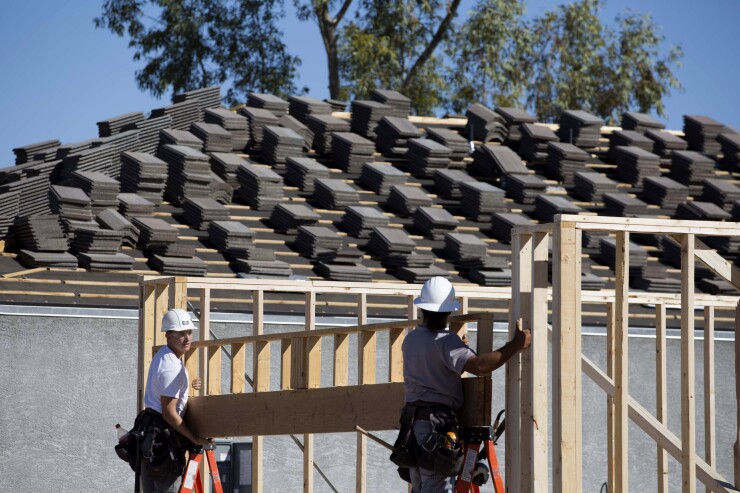Groundbreaking on new homes eased from the fastest pace in 13 months while permits held steady to finish the strongest year for housing construction in a decade, government figures showed Thursday.
Residential starts fell 8.2% to a 1.19 million annualized rate (the estimate was 1.28 million) after a 1.3 million pace in the prior month — the biggest drop since November 2016. Single-family home starts fell 11.8% to 836,000 and multifamily rose 1.4% to 356,000.
Permits, a proxy for future construction of all types of homes, fell 0.1% to a 1.302 million rate (the estimate was 1.295 million) from a 1.303 million pace. Applications to build single-family homes rose to an 881,000 annual rate, the fastest since August 2007, from 865,000.

The
At the same time, annual totals for permits, starts and completions were all the highest since 2007. A separate report on Wednesday showed
The level of permits indicates construction should pick up, putting further pressure on the labor market, where builders are already facing a smaller pool of skilled workers. At the same time, last month's tax-cut legislation that curbed deductions for mortgage interest and property taxes could weigh on housing in some states.
The latest results also indicate the contribution of residential construction spending to fourth-quarter growth may be smaller than previously anticipated.
Despite a sharp correction, housing starts are back to pre-hurricane levels and the December reading is just a bit shy of the cyclical peak. Therefore, while the 8.2% drop in the month looks dramatic, it is just nothing more than a sign of normalization after a surge in October-November. Housing starts and permits data were roiled by hurricanes and post-storm rebuilding in recent months. Bloomberg Economics projects a solid rebound in residential investment in the fourth quarter of 2017 following a decline in the third quarter.
All four regions posted a monthly decline in starts, led by a 14.2% drop in the South and 4.3% in the Northeast. The report was released jointly by the Census Bureau and Department of Housing and Urban Development in Washington.




